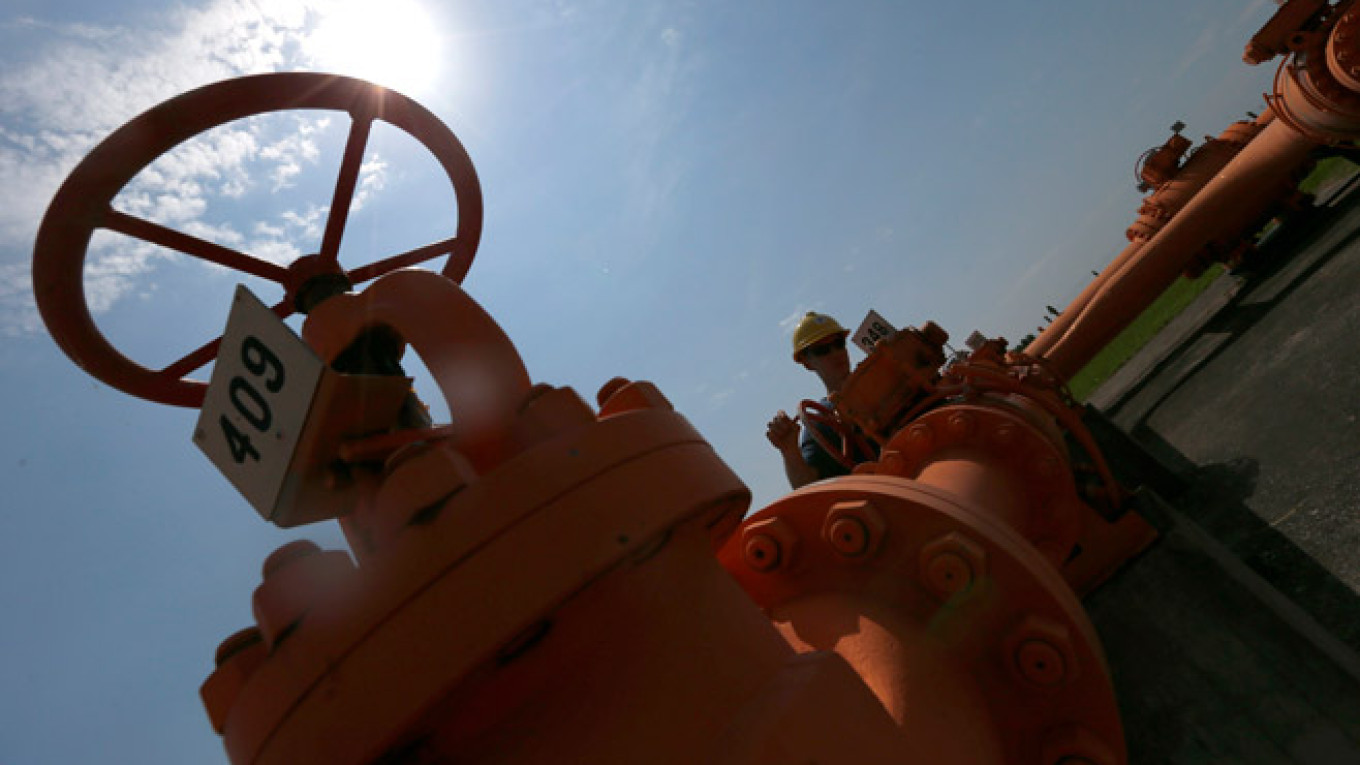When Poland last month accused Russian natural gas exporter Gazprom of denying it the supplies it wanted, something did not quite add up: Poland did not need all the gas it was asking for and would have had nowhere to put it.
This led some traders in the energy market to conclude that Poland has been trying to discredit Gazprom's reliability as an energy supplier ahead of re-negotiation of a long-term gas contract next month.
Poland could argue that Gazprom should charge a lower price if it cannot fully meet its contractual obligations.
"It's been warm, the storage is full. From the point of view of gas usage, there's no need for PGNiG to increase requests for gas from Gazprom," a Poland-based market source said.
"I think that PGNiG wants to strengthen its negotiating position ahead of the November talks with Gazprom by projecting an image that Gazprom is an unreliable supplier."
It's the kind of tactic that Gazprom has used for years. Now its customers, who once meekly accepted the Russian firm's terms because they had no other option, are starting to turn the tables.
Eastern European countries are slowly building alternative sources that allow them to reduce dependence on Russian gas.
Poland has built pipelines to Germany and the Czech Republic that allow it to import gas from the West, and from next year it will have its first terminal to import liquefied natural gas.
"Toward the end of 2015. Poland will gain full independence when it comes to technical possibilities of buying gas from directions other than the east," Jan Chadam, head of Poland's gas pipeline operator Gaz-System, told Reuters.
Why the Extra Gas?
In the closely guarded world of gas deals with Russia, Poland's complaints were unusual.
Polish state-controlled gas group PGNiG said on Sept. 10 that it was receiving 25 percent less gas from Gazprom than it requested. A day later the shortfall grew to 45 percent.
In the days since then, Poland has continued to show that deliveries that have fallen below requested amounts.
Romania, Austria and Slovakia, which is the EU's main entry point for Russian gas, have followed suit with reports of lower-than-requested deliveries as well.
Gazprom said it was fulfilling its contractual obligations, which call for daily delivery volumes within a set range, but could not ship the extra gas, because it needed to build its own stockpiles for winter. Many analysts read this as an attempt to discourage its clients from re-selling gas to Ukraine.
PGNiG chief executive Mariusz Zawisza was quoted as telling Polish state news agency PAP that "the conventional wisdom about the reliability of our partner has crumbled."
Polish Deputy Prime Minister Janusz Piechocinski said Gazprom, which provides gas for over half of PGNiG's annual sales of 16.2 billion cubic meters (bcm), was reducing supplies in "an attempt to test Poland's reaction."
But gas market insiders were scratching their heads about why Poland needed all the gas it was requesting.
Responding to Reuters' questions on why it has been asking for so much gas, PGNiG said: "We are placing orders to cover our running needs and to fill our underground storages for investment purposes. … The ordered volumes are in line with the deal with the Russian company."
Data on gas flows showed that the amount Poland was receiving was in line with historical levels, and in fact slightly higher than two years ago.
Temperatures at the time were mild, so there was no spike in domestic demand.
For more than a month Polish storage levels have remained almost unchanged at close to full, according to data from Gas Infrastructure Europe.
Poland cannot use the extra spot gas to pump more to ally Ukraine because the link from Poland to Ukraine has already been running at full capacity following a cutoff that lasted only two days.
If Poland needs extra gas, furthermore, it can buy that gas cheaper from its western links than from Gazprom.
Under a 2010 deal, PGNiG is to receive up to 10.2 billion cubic meters a year from Gazprom until 2022. Thanks to an arbitrage settlement in 2012, PGNiG cut the contract's prices by over 10 percent.
Even after that cut, Gazprom's prices to Poland are among the highest in Europe. PGNiG already said it expected larger discounts in the forthcoming price talks.
The theory that Poland has been practicing Russian-style brinkmanship over gas has also reached Brussels.
"Not only Russia, but other countries as well, like Poland, are also playing politics with gas, seemingly nominating more gas than they need almost in the hope that Russia won't oblige," a European Commission source said.
In his interview with the Polish news agency, PGNiG's chief executive recognized there might be a link to the November talks.
"I can even see in this event an element of strengthening of our negotiating position," Zawisza was quoted as saying.
For 2015, Poland must sell at least 14 bcm of gas, or about 18 months worth of supplies from Gazprom, as supplies from its new LNG terminal in addition to the Russian gas would leave it over-supplied, Espirito Santo analyst Wojciech Kozlowski said.
If Ukraine's row with Russia causes a shortage, PGNiG can sell its surplus at a profit, but if there is no disruption, the firm risks big gas trading losses, Kozlowski said.


